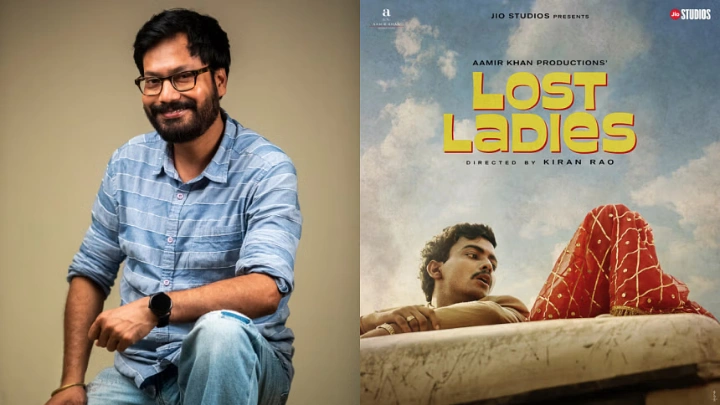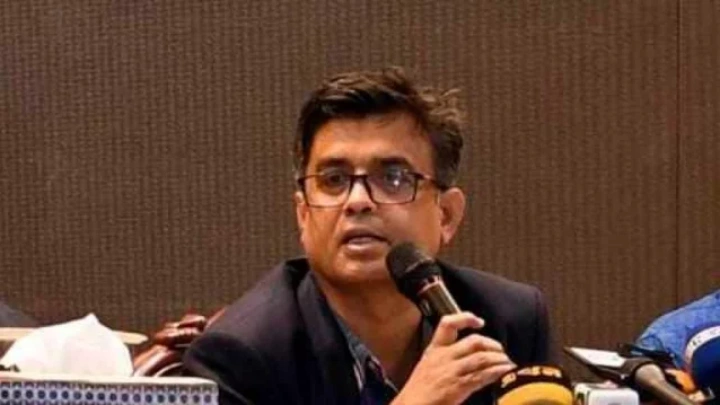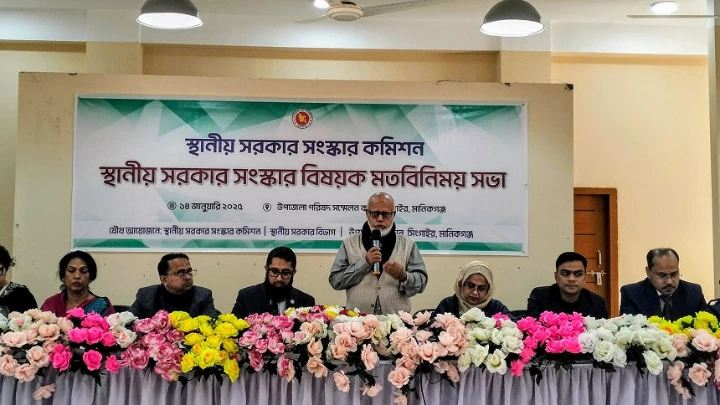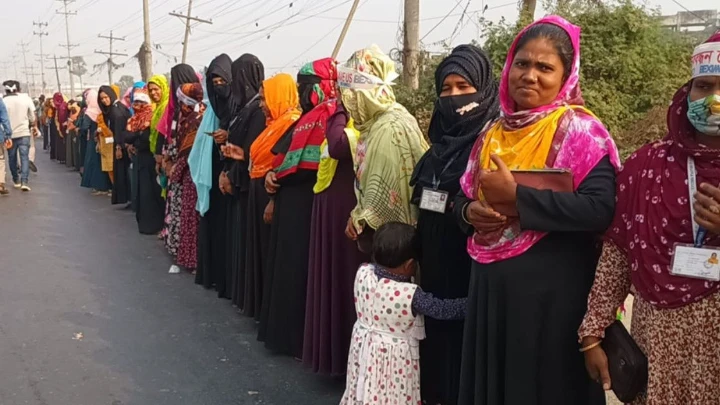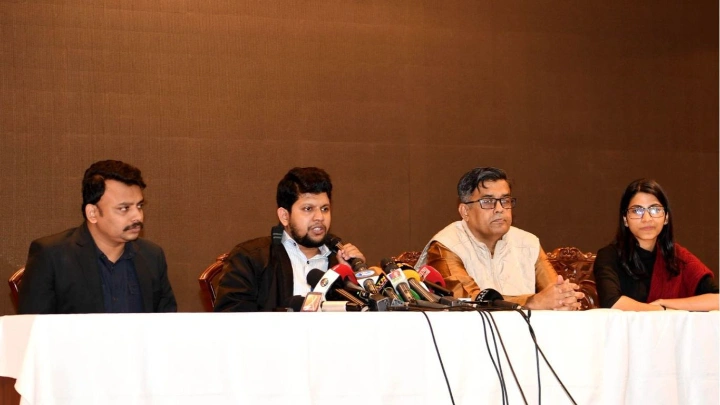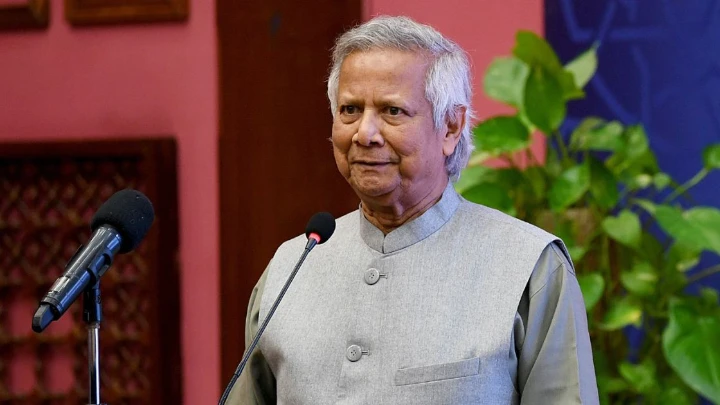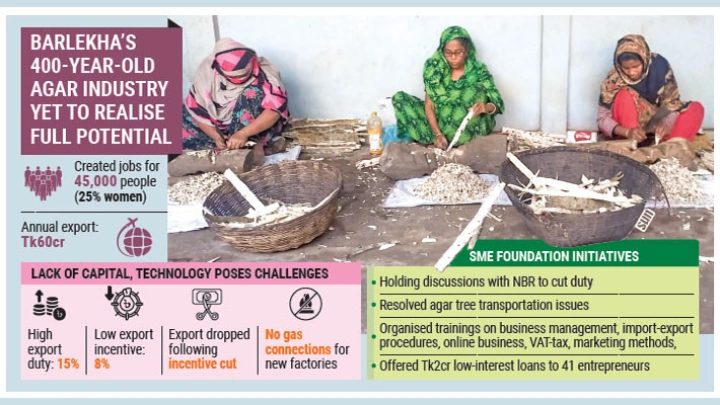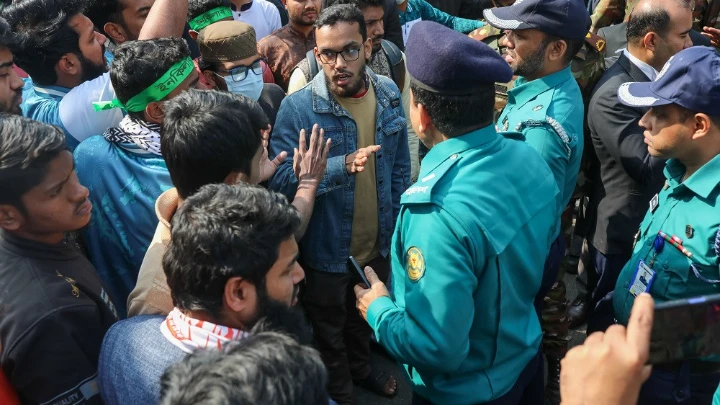Behind Biplab Goswami’s comedy of errors, ‘Laapata Ladies’
TheDailyStar || Shining BD
To make a film is to tell a story, and when it's a cumulation of collective consciousness, to find common social grounds, values, and ordinary yet telltale stories that create the base of development of human thought and psyche is a perfect example of a much needed social and cultural commentary.
Creating a visual story, with the intention to attract and aware people from all walks of life is difficult. However, to persist on this thread of storytelling in a varied cultural landscape like India, where poverty, social injustice, cultural stigma, and gender discrimination loom over, is more than challenging.
With Kiran Rao on her first directorial chair, the critically and commercially acclaimed comedy-drama film "Laapata Ladies" does it all. What is more intriguing is the mind of Bengali screenwriter Biplab Goswami, who had put a story known to all on a Bihar landscape with subtle nuances and weights put on two distinguishably different women in a patriarchal backdrop.
"If you are a film critic or cinema enthusiast or socially-aware person, 'Laapata Ladies' will seem like a satire to you. If you want to have a good time watching a film, it is a comedy. If you are in for making people aware through entertainment and the magic of cinema, you are like me," said the mild-mannered screenwriter Biplab in an exclusive interview at The Daily Star office.
Biplab, who considers himself a sociological observer of time, art, and culture, drew inspiration from his early life in Agartala and his fascination with trains, which symbolise communication and connection. These elements add depth and authenticity to his narratives. His father, Karunamoy Goswami, had a deep appreciation for arts and culture, which influenced Biplab's career choice.
"Although in urban areas, gender disparity has somewhat become tolerable in terms of professional, sociological, and educational sectors, it is still prevalent in rural areas. This thought always prompted me to do something, even if it doesn't make an immediate impact," said Biplab with a polite grin on his face.
Photo: Sheikh Mehedi Morshed
After studying at the Satyajit Ray Film and Television Institute in Kolkata, Biplab worked on various projects in Mumbai, including editing films, producing documentaries, and eventually focusing on writing and directing.
The story of "Laapata Ladies" began nearly ten years ago when Biplab wrote an outline that deeply resonated with him. He entered a prestigious screenplay competition in Mumbai, judged by industry stalwarts like Aamir Khan and Rajkumar Hirani. His screenplay, initially titled "Two Brides", won second place out of nearly four thousand entries, catching the attention of Kiran Rao, who decided to direct the film, and Aamir Khan, who joined as a producer.
"The concept for 'Laapata Ladies' emerged from my lifelong observations of gender discrimination, starkly evident from childhood and increasingly pronounced in adulthood. This issue persists in the 21st century. A vivid memory from a village visit years ago, where I saw a girl alone in fields, veiled despite no one around, struck me deeply. This image epitomised the gender disparities prevalent in our society," Biplab said while explaining his process of narrating a story that resonates with the mass.
Photo: Sheikh Mehedi Morshed
"Laapata Ladies" is a personal endeavour to illuminate the challenges women face in a manner that doesn't hurt anyone's sentiments, whether they are patriarchal agents of society or feminists. Biplab sees everyone as part of society and aims to explore society's resilience amid pervasive inequality across varied landscapes—cities, villages, and hills. He considers himself a feminist but opposes stereotyping, as he believes it excludes a significant part of society.
"I never thought of making a fiction-only formula film. I wanted my script to be closer to life, corresponding to a truthful social commentary while being entertaining to people from all spheres," he said.
With this idea in mind, Biplab framed the story of "Laapata Ladies" as a humorous social commentary that can be both entertaining and commercially successful. He believes the film is more of a satire of the current sociological structure.
"The story is about societal complexities, but the complexity itself was the path for the characters to attain their respective independence and empowerment," he explained. "Patriarchal 'male ego' or self-righteousness not only harms women but also harms men, as they fall prey to their own schemes. It's not about patriarchy or feminism; equality is a prerequisite to making a society that is equal and free."
Photo: Sheikh Mehedi Morshed
Biplab emphasised that he did not want to make a direct statement through the film but rather to show where the problem lies through ease, simplicity, humor, comedy, and the strength of cinema from a neutral standpoint. This approach allows audiences from all backgrounds to enjoy the film and form their own judgments without feeling that any ideas are being forced upon them.
The success of "Laapata Ladies" has opened doors for Biplab, bringing offers from the Mumbai, Telugu, Tamil, and Bangladeshi film industries. Despite this newfound recognition, he remains focused on creating films that reflect his vision and storytelling style. Passionate about making films in Bengali, he dreams of collaborating with artistes from both sides of the Bengal border.
Shining BD

